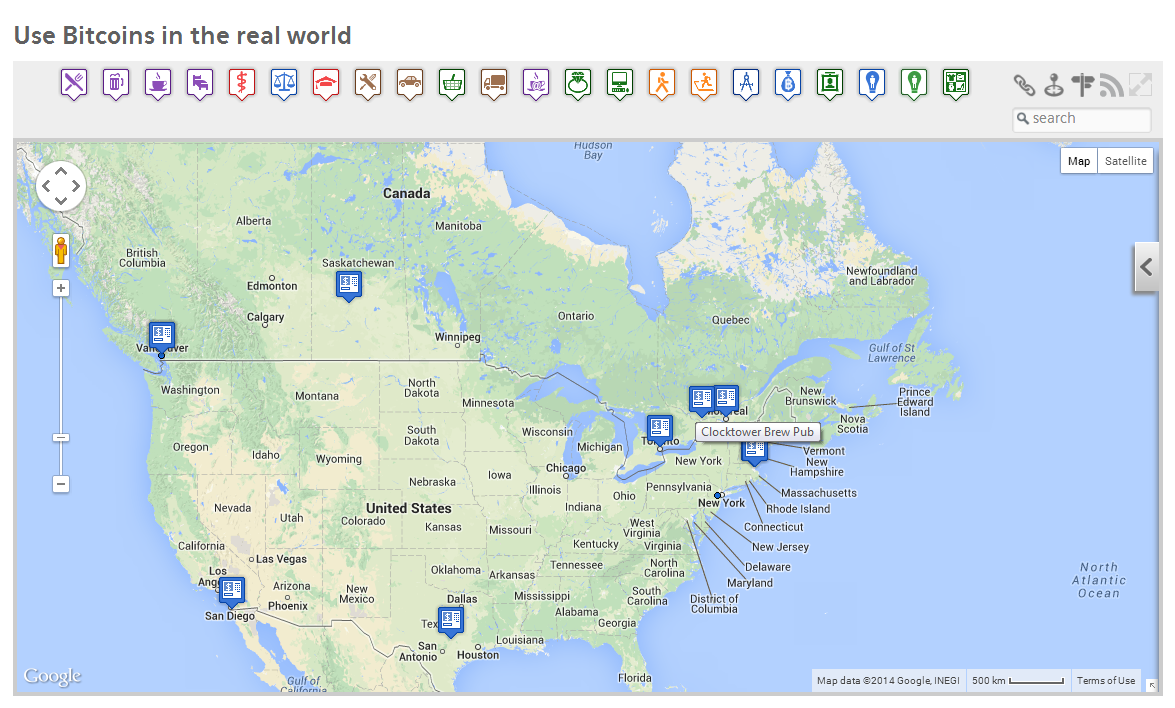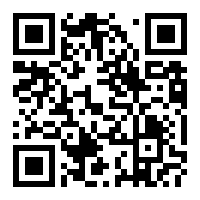Getting Started with Bitcoin (in Canada)
If you've been paying attention to the news recently, you've probably been hearing more and more about Bitcoin. I wrote this post for people who want to gain some first-hand experience and give this cryptographic currency a try. The examples and discussion are focussed on Canadian websites and applications. Try this at your own risk, of course, but it's written with people who want to start with some low-stakes experimentation in mind.
Sometimes, jumping right in is the best way to learn, so I'll start with some quick-start instructions, then discuss different things you can do with Bitcoin (BTC), and some issues around the cyber-currency.
Quick-Start
1. Get a wallet
- There are many options for Bitcoin wallets (basically an address for sending/receiving Bitcoins and an account for storing them).
- To start out, an online or mobile wallet is the fastest to set-up, but if you start to use Bitcoin heavily, you should definitely look into desktop, cold-storage, and temporary wallets—wallets are free so you can make as many as you need.
- Blockchain's wallet is the one I started with, and it was simple to set-up.
- To make a Blockchain wallet, go to the new wallet link and enter your email address (or not, it's optional) and a password. As with all things Bitcoin, lost/forgotten passwords are gone forever (it wouldn't have the necessary security otherwise).
- If you use Chrome as a browser, Blockchain offers an extension/app for accessing your wallet with greater security.
- Blockchain wallets are also accessible through mobile apps.
2. Deposit to the wallet
- An empty wallet is still useful as a receiving address, but you'll obviously need to make a deposit before you can use it for spending (i.e. sending BTC to another person or organization).
- One way to get Bitcoins is to sell a good or service to someone who already has some and get paid in BTC.
- You may have also heard of "mining". It is an advanced procedure and, as far as I can tell, requires specialized equipment to really be profitable at this stage in Bitcoin's development.
- The most straight-forward way to get some Bitcoins in your wallet is to buy them from an exchange, like if you were trading traditional currencies.
- Since this is a quick-start guide for people in Canada, QuickBT is a good choice. I recommend reading their FAQs
- To use QuickBT, once you have a wallet from step 1, enter your wallet address and how many Bitcoins you want to buy. QuickBT limits transactions to approximately $100 CAD (around 0.12 - 0.15 BTC) to hamper fraud. Then click "Quote" and the current exchange rate will be shown.
- QuickBT includes a step where they text a one-time PIN to your phone for security (setting an example for banks!), and the first time you conduct a transaction they'll probably call you to make sure you're a real person.
- QuickBT uses Interac Online, so you'll need to identify your bank when prompted, then log in to your online banking to approve the transaction, following which you'll be automatically returned to the QuickBT site while the BTC purchase concludes.
- Be prepared to wait a little while (around 30 min.) before the Bitcoins are in your wallet and available for spending: the way the Bitcoin protocol works, each transaction has to be "confirmed" by multiple 3rd parties, so it is not instantaneous.
- QuickBT does charge fairly high fees (their mark-up is ~10%), so you pay for the convenience they offer. For more frequent or larger transactions, you'll likely want to set-up an account at an exchange like The Canadian Virtual Exchange, which offers lower fees and the option to do transfers directly from/to an online banking account. You will need to verify your account by submitting documentation such as identification and a letter from your bank to use many of the features, so it is a lot more effort though.
3. Start sending/spending Bitcoins
- There is a constantly growing list of places you can use Bitcoins. Expedia is perhaps the most high-profile company to accept BTC as payment to date.
- CoinMap is a handy map interface for businesses that accept Bitcoin.
- UseBitcoins maintains a list of businesses that accept Bitcoin, and also includes a map tool.
- There are some Bitcoin "ATMs" where you can withdraw cash and have it come out of your Bitcoin wallet. This map comes from UseBitcoins.info, filtered to only show ATMs (see also). I'd like to try using one—maybe next time I'm in Ottawa, unless one is introduced in the Maritimes in the meantime.

- Another thing you can do with Bitcoins is donate them. This could be especially promising for giving to sensitive or controversial causes due to the pseudonymous nature of Bitcoin. I sent donations to the Electronic Frontier Foundation and the Foundation for Individual Rights in Education to see how it works; I thought these organizations were appropriate recipients since they work for a more open world (e.g. fighting against censorship), that enables things like Bitcoin to thrive.
- Both of these organizations automatically created a one-time BTC wallet (address) to receive the donation, which I found impressive.
Advanced Options
Things like multiple wallets (and different types), "mining", accepting BTC as a merchant, and setting up accounts on an exchange have been mentioned above, but are otherwise outside the scope of this post. Further reading is suggested.
You can learn lots about Bitcoin by looking into the details of the market and transactions—actually, I've found experimenting with Bitcoin (and I've only been trying it for a few months by now) to be educational about markets and financial topics in general.
- Check the spot price or historical price trends; other charts are also available.
- Watch the latest transactions in real time on Blockchain's front page.
- Click on an address to see its transaction history. For example, at the time of writing this was #1 in the top 100 most active wallets. Remember that Bitcoin doesn't offer full privacy. In fact, every transaction is public (it has to be confirmed by multiple 3rd parties to maintain the integrity of the protocol), but wallet addresses are just numbers rather than names. So anyone that knows your address can see your transactions, but they won't know who is on the other end (unless they also know the name behind that address). Using multiple and temporary wallets can increase privacy.
Discussion
Here are some random cautions and musings about Bitcoin:
- Be careful: Bitcoin is not yet a mature market/technology. Only hold as many BTC as you are willing to lose. As the Mt. Gox episode illustrated, no BTC exchanges are "too big to fail" and deposits are not insured (no FIDC). Furthermore, the cryptographic protocols mean that a mistaken transaction or lost/forgetten key (password) are irreversible and irretrievable.
- One possibly handy application for Bitcoin is when you're travelling as it can avoid exchange fees (for transactions in BTC) and isn't a physical thing that you have to carry around.
- It's certainly something to use at your own risk, but I've noticed that most of the Bitcoin sites seem to do an excellent job at explaining those risks with easy-to-understand descriptions and graphics (not just EULAs and TOSs).
- Sending a nominal amount of BTC with a message in the comment field could be a good way to contact a stranger without getting caught in a spam filter.
- Canada is off to a good start with this technology. I hope it doesn't get stifled by over-regulation.
- If you're going to use Bitcoins, you should be aware of their taxable status. According to this news release Bitcoins are governed by barter transaction rules in Canada (but be sure to do your own due diligence at tax time).
- My opinion on taxing Bitcoin is that the Revenue Agency should take include a De minimis amount/threshold, so that people who are day-trading or arbitraging Bitcoin, or getting paid directly in the digital currency would get taxed but someone following the suggestions in this post (i.e. purchasing small amounts of BTC (out of income that has already been taxed) to spend) wouldn't need to worry. Alas, I doubt my opinion carries any weight with the CRA.
For further reading, here are some guides from other websites (not specific to Canada) along with general information about Bitcoin:
- A guide
- Another guide
- The basic facts
- Some important cautions
- Lots of info
- Inside a Blockchain wallet
- Bitcoin news
Finally, the following QR Code is my Bitcoin address if you feel like sending me any Bitcoins to practice making transactions or as a tip. It's followed by a price-tracker widget for BTC.

(If the widget doesn't work, try this link: http://www.coindesk.com/price/bitcoin-price-ticker-widget/).